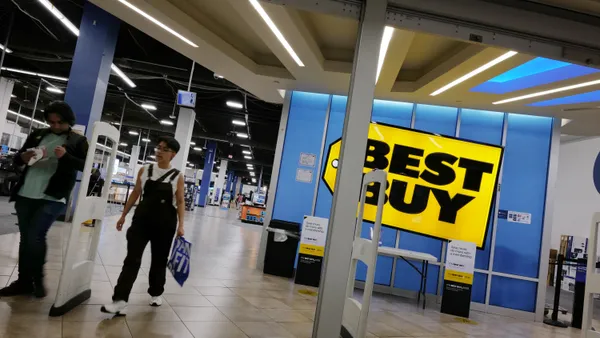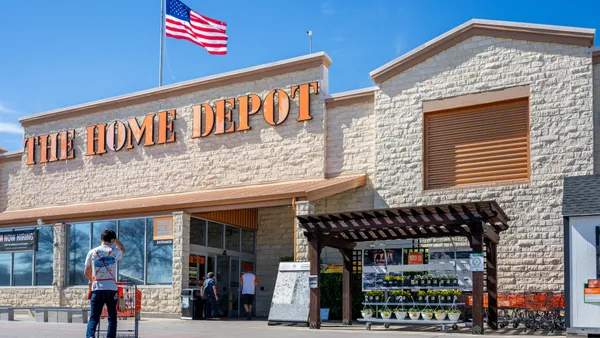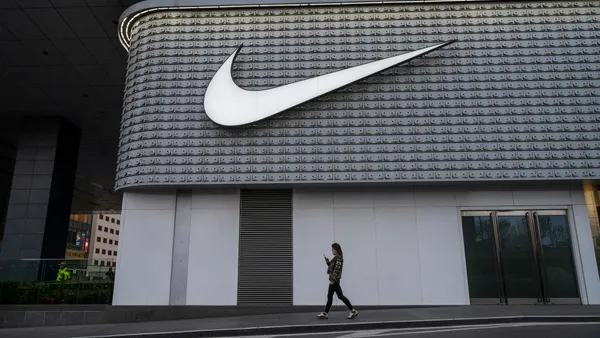Dive Brief:
- Party City plans to open just 25 pop-up stores under its Halloween City banner this year as it navigates a holiday disrupted by the pandemic, according to a press release issued Tuesday.
- The number of stores represents a 91% reduction compared to last year's announcement of 275 Halloween pop-ups.
- Hiring for the holiday declined at a slower pace. For this year Party City plans to hire 20,000 temporary employees for the Halloween season, which is down 20% from 2019. A company spokesperson said that each store would have four to five additional employees compared to previous years to assist with omnichannel services, such as curbside and buy online, pickup in-store.
Dive Insight:
Even if 2020 were a normal year, Party City would face a challenging Halloween this year. Last year brought a steep decline in its Halloween City sales. Its performance during October was so surprisingly bad it sent investors fleeing when the company announced it. The company's stock price fell by more than 60% and has yet to recover.
Party City's Halloween business accounts for 20% of its domestic retail sales, so a poor performance in the season has outsized impact, and can't be made up for another full 12 months. And last year, it was clear the company lost market share in costumes and other products to rivals. Executives cited a surprisingly large online shift. As consumers consolidate trips and make large strides toward online buying amid the pandemic, this year is likely to accelerate that trend.
Not only is COVID-19 shaping how people buy, it's also changing Halloween itself. According to Party City's survey data, 96% of parents still plan to celebrate Halloween this year, but 70% are seeking alternatives to traditional trick-or-treating.
Survey data from Prosper Insights & Analytics conducted for the National Retail Federation shows that 10% fewer people plan to throw or attend a Halloween party this year, while 7% fewer plan to hand out candy, 7% fewer plan to go to a haunted house and 6% fewer plan to go trick-or-treating. But 4% more people plan to decorate their house, and the number of people planning to dress in costume has decreased only slightly, by 1%.
According to the NRF data, spending on Halloween overall is estimated to decline only slightly, coming in $8.05 billion for the year compared with $8.78 billion a year ago.
For those customers changing how they shop due to the pandemic, Party City said it is offering contactless options like curbside pickup, same-day delivery, online purchasing, in-store contactless payments and a virtual costume wall on its mobile app.
"More customers are choosing our omni-channel options like buy online pickup in store, contactless curbside pickup, and our new same day delivery services," a Party City spokesperson told Retail Dive. "With the additional associates in our stores we can ensure a seamless experience for however you choose to create your Halloween celebration."
Competitors are adapting, too. Spirit Halloween said in a recent press release that it is partnering with Instacart for same-day contactless delivery. According to the company, searches for "Halloween" on Instacart are up 650% this year.
In Party City's most recent earnings call, executives said they expect Halloween sales to be down. CEO Bradley Weston told analysts that the company was preparing while trying down to hold down costs and purchases.
"So even though we see it down, we're planning Halloween, we're really just trying to avoid overspending against potentially decreased demand," he said, according to a Seeking Alpha transcript. "But I would say the situation is really fluid, and we have to be fluid."













